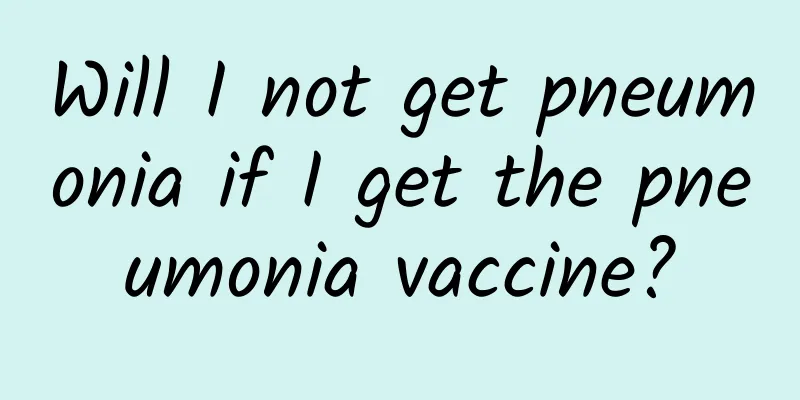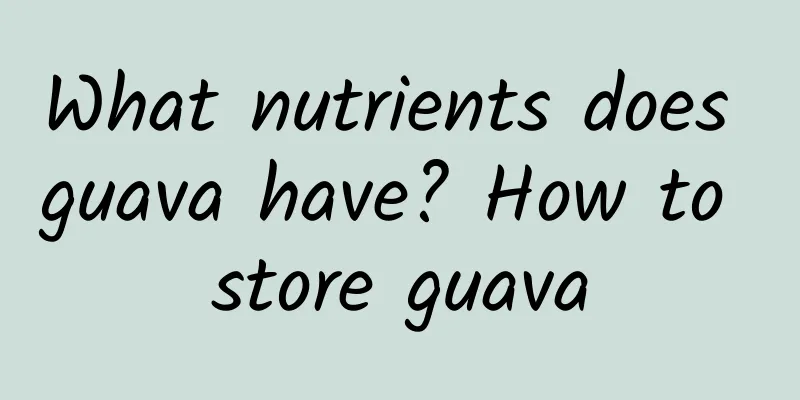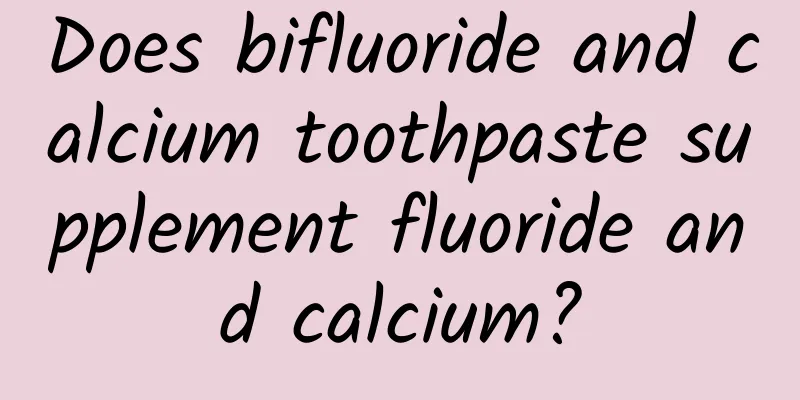Will I not get pneumonia if I get the pneumonia vaccine?

|
Author: Li Huizhen Source: New Science Life Will I not get pneumonia if I get the pneumonia vaccine? Pneumonia is the most common infectious disease in children, and it is prone to occur during the transition between autumn and winter. In clinical work, we often encounter some questions from parents about pediatric pneumonia, such as, how to prevent pneumonia in daily life? Do my children need to be vaccinated? Will they not get pneumonia after vaccination? Why did my child get pneumonia again after being vaccinated with pneumonia vaccine? Why did my child have a fever after being vaccinated? I believe that after reading this popular science article, everyone's doubts will be solved. What is pneumonia? In a broad sense, pneumonia is an inflammation of the lungs caused by pathogens, physical and chemical factors, immune damage, allergies and other factors, which can cause symptoms such as fever, cough, sputum, and difficulty breathing. From an age perspective, pneumonia is more common in children under 2 years old, the elderly over 65 years old and people with low immunity. Pneumonia can be divided into several types according to the pathogenic factors: bacterial pneumonia, common bacteria include Streptococcus pneumoniae, Staphylococcus aureus, Haemophilus influenzae, Pseudomonas aeruginosa, etc.; viral pneumonia, common viruses include influenza virus, respiratory syncytial virus, measles virus, cytomegalovirus, etc.; pneumonia caused by atypical pathogens, common pathogens include mycoplasma, chlamydia, Legionella, etc.; pneumonia caused by other pathogens, including rickettsia, toxoplasma, parasites, etc.; pulmonary fungal disease, common fungi include Candida, aspergillosis, cryptococcus, etc.; pneumonia caused by physical and chemical factors, including choking, aspiration, aspiration pneumonia, etc. What is pneumococcal pneumonia? Streptococcus pneumoniae is the leading bacterial pathogen causing pneumonia or respiratory tract infection in children in autumn and winter, accounting for about 11% to 35%. In addition, Streptococcus pneumoniae can also cause otitis media, bacterial meningitis, sepsis, etc. In severe cases, it can cause deafness, permanent brain damage, or even death in children. The symptoms and signs of pneumonia depend on many factors such as the type of infection, the age of the child, and physical fitness. The clinical manifestations range from mild to severe. Children often have fever, cough, sputum, etc., sometimes accompanied by purulent or bloody sputum. Children under 2 years old have an acute onset and have symptoms of upper respiratory tract infection before the onset of the disease, manifested as fever, cough, shortness of breath, fixed moist rales in the lungs, etc. Children with pneumococcal pneumonia will cough up rust-colored sputum. At present, the main method of treating pneumococcal infection is antibiotics. However, due to the abuse of antibiotics, we gradually find that the treatment of pneumococcal infection becomes more difficult and the course of the disease is prolonged. Therefore, for pneumonia caused by pneumococcal infection, prevention is better than treatment after infection. What is the pneumonia vaccine? At present, pneumonia vaccines marketed domestically and abroad are all vaccines developed for pneumococcal infection and only have a preventive effect on bacterial pneumonia caused by pneumococcal infection. They are 23-valent pneumococcal polysaccharide vaccine and 13-valent pneumococcal polysaccharide-protein conjugate vaccine. The "valence" of the pneumonia vaccine here represents the number of pneumococcal types that can be prevented. Common types of pneumonia vaccines on the market include 13-valent pneumonia vaccine and 23-valent pneumonia vaccine, in addition to 7-valent and 10-valent vaccines. The 13-valent pneumonia vaccine is a polysaccharide-protein conjugate vaccine that can prevent 13 serotypes of pneumococcal pneumonia and is suitable for infants and children aged 6 weeks to 5 years (before the 6th birthday). The 23-valent pneumonia vaccine is a polysaccharide vaccine that can prevent 23 serotypes of pneumococcal pneumonia and is suitable for children over 2 years old and the elderly over 65 years old. Will children not get pneumonia if they get the pneumonia vaccine? During consultations, parents often ask us: "Will my child not get pneumonia if he gets the pneumonia vaccine?" It is important to understand that the statement "you won't get pneumonia if you get the vaccine" is wrong! First of all, there are many reasons that cause children's pneumonia, not just Streptococcus pneumoniae, and the pneumonia vaccine does not protect against other bacteria such as Haemophilus influenzae, or pneumonia caused by other pathogens. Even if we have received the pneumonia vaccine, children may still suffer from pneumonia caused by other reasons, such as mycoplasma pneumonia, Haemophilus influenzae pneumonia, etc. Therefore, it cannot be said that you will not get pneumonia if you get the pneumonia vaccine. Do I need to get the pneumonia vaccine again if I have had pneumonia? Parents will also ask us: "My child has had pneumonia before, should he still get the pneumonia vaccine?" Our answer is: "Vaccination is recommended!" If you have had pneumonia, you may still have pneumonia again. Especially before the age of 6, children have low resistance and are more likely to be infected. In addition, there are many pathogens that cause pneumonia. The previous pneumonia was not necessarily caused by pneumococcal infection. Pneumonia vaccination can play a certain preventive role. For children of appropriate age, vaccination is recommended. At the same time, vaccination against pneumonia can greatly reduce the risk of pneumonia in children. There are 91 serotypes of pneumococcus. At present, the latest research data shows that both 13-valent and 23-valent pneumococcal vaccines can greatly prevent invasive pneumococcal infection and avoid the occurrence of severe pneumonia. The World Health Organization has listed the 13-valent pneumococcal vaccine as a "very high priority" pneumonia vaccine, that is, the highest level of priority recommended for self-paid vaccination, and believes that it is one of the most cost-effective means of preventing infants and young children from pneumococcal infection. How to choose the type of pneumonia vaccine? The immune system of children under 2 years old is not yet fully developed, and they cannot produce an effective immune response to simple polysaccharide vaccines. It is recommended to receive the 13-valent pneumococcal vaccine; the 23-valent pneumococcal vaccine can be used for children over 2 years old and the elderly over 65 years old. Of course, if a child has received the 13-valent pneumococcal vaccine, there is no need to receive the 23-valent pneumococcal vaccine again, because the benefit of re-vaccination is not great for the child. There is currently a lack of high-quality medical evidence on whether children can obtain lasting immunity after vaccination, but limited data show that children who have completed the vaccination program on time do not need to receive the 13-valent pneumococcal vaccine again. How long does the pneumonia vaccine provide protection? There is currently little research data on the duration of protection, but most clinical experts believe that after a full course of pneumonia vaccination, the protection period is as long as 2 years. Here, there are some precautions that need to be explained. First, because the 13-valent and 23-valent pneumococcal vaccines belong to the "second category of vaccines", they need to be vaccinated under the principle of "informed consent and voluntary at own expense" of parents or guardians. It is recommended that families with conditions vaccinate this vaccine. Second, if the child is allergic to any active ingredient, excipient or diphtheria toxin in the pneumococcal vaccine, vaccination is contraindicated. Third, vaccination should be postponed during the acute fever period. Fourth, after vaccination, fever, local redness and swelling, slight local nodules or small red rashes from skin bleeding occur. These are normal vaccination reactions. Parents do not need to worry too much. They usually recover in a few days. However, if the fever does not subside or symptoms such as a large area of rash appear, you need to go to the hospital in time. ■ (Author's unit: Department of Pediatrics, Renji Hospital, Shanghai Jiao Tong University School of Medicine) |
<<: How to treat myopia in children and teenagers?
>>: What will the patient experience during anesthesia?
Recommend
Urgent reminder! For one month, these people should strictly wear protective masks when going out
Have you noticed that when walking on the streets...
Causes of white discharge from the vulva
Women will have leucorrhea when they reach a cert...
Detailed explanation of 7 dietary considerations for gout patients!
Gout is a common symptom in life, mostly caused b...
Why can't celery leaves be eaten? Do you need to blanch celery for making celery dumplings?
Celery leaves are rich in vitamins, trace element...
Vulvar itching and white discharge, what is going on
Vulvar itching is a common gynecological disease....
Is the smell of gasoline harmful to the human body? Why does mango smell like gasoline?
Oil is a kind of oil that we use in our daily car...
Small bumps on vagina
Although every woman has a reproductive organ cal...
Pregnant women sleeping on the left side
Although many pregnant women know that it is bett...
If the brake light switch is broken, will there be leakage? How to deal with the broken brake light switch?
I believe that everyone who has driven a car know...
Premature ovarian failure makes girls older! Are your ovaries still young?
Content from : Gu Zhuowei Shanghai Renji Hospital...
What to eat to stimulate menstruation when menstruation is late
Delayed menstruation is a condition that many wom...
Don’t waste your money! These are the physical examinations you need to do at different ages, save them now!
As people's living standards continue to impr...
Are there any signs of pregnancy?
For women who are first-time mothers, many of the...
Stomach ache with brown discharge
The presence of white secretions, that is, brown ...
Facebook’s Funding and Path to a $100 Billion Valuation – Infographic
[Infographic: Facebook's Financing and Road t...









